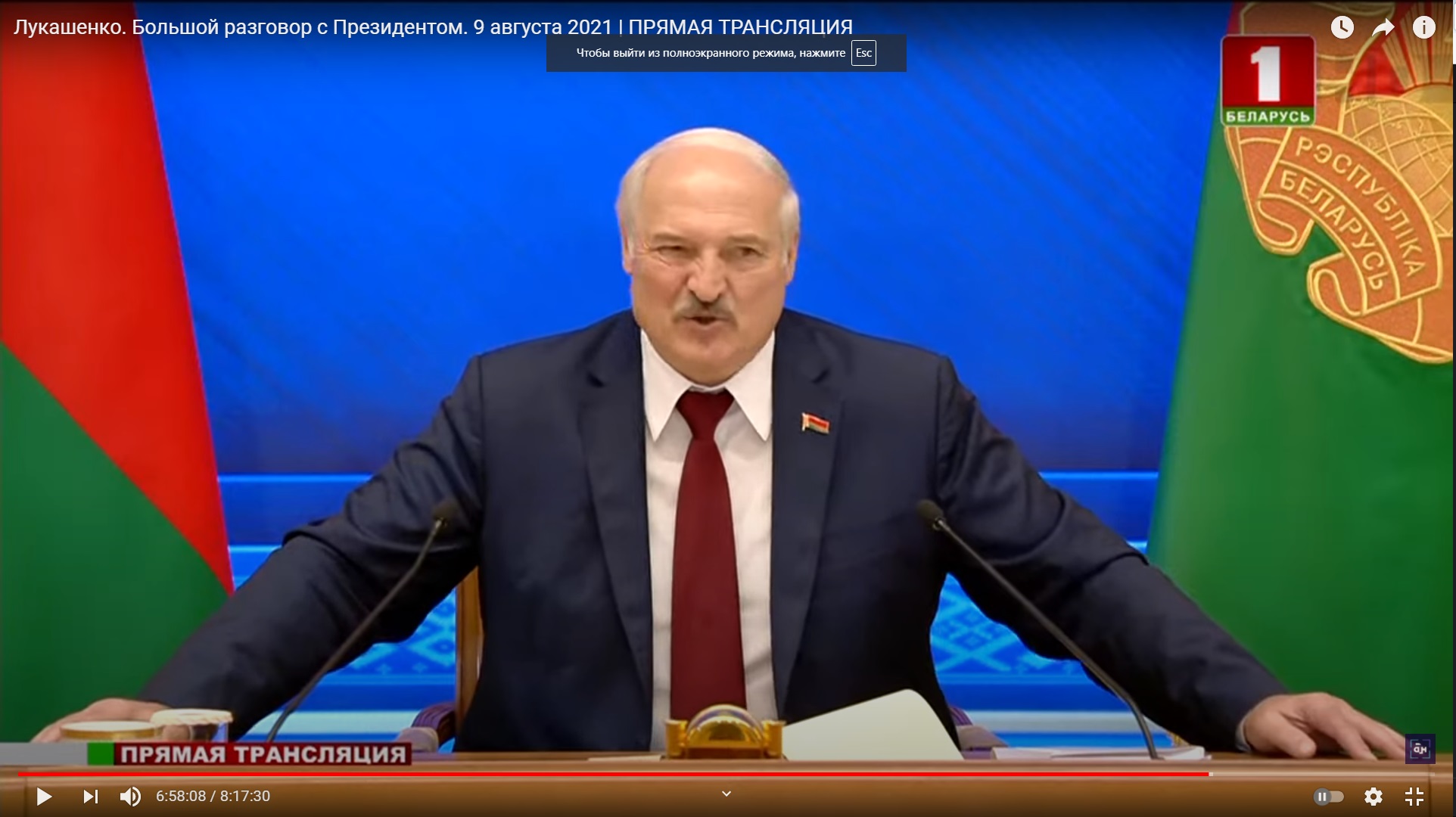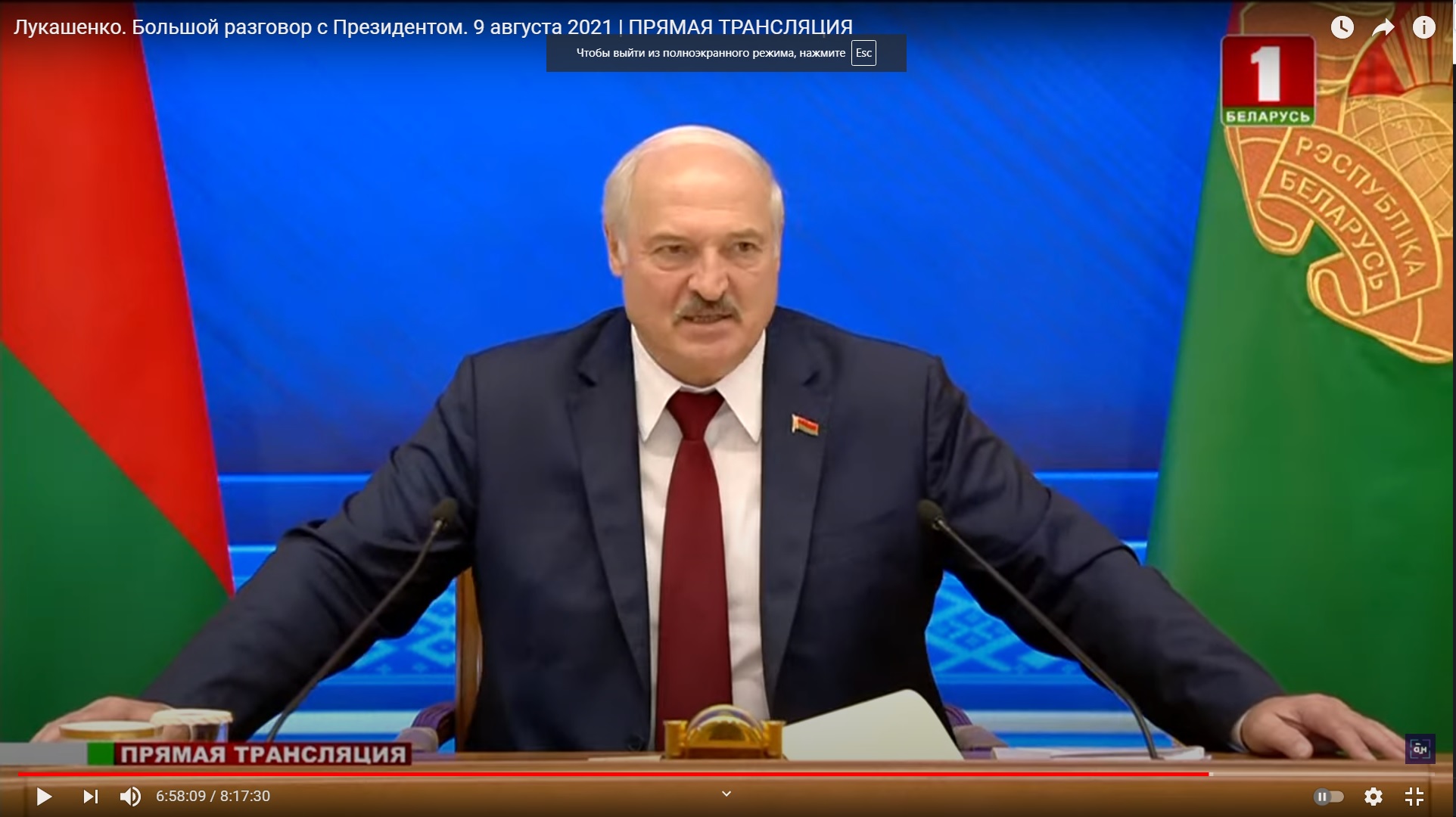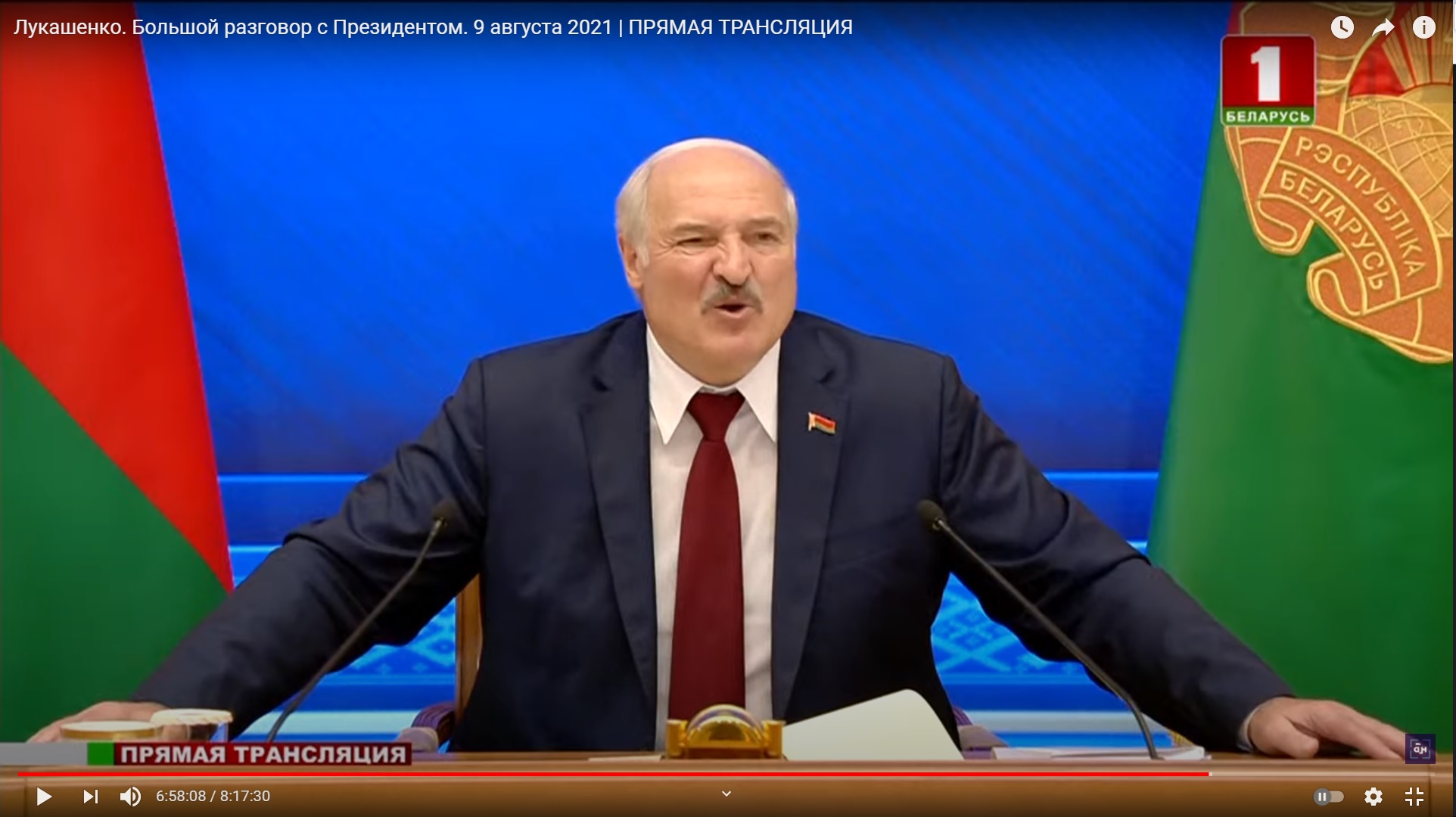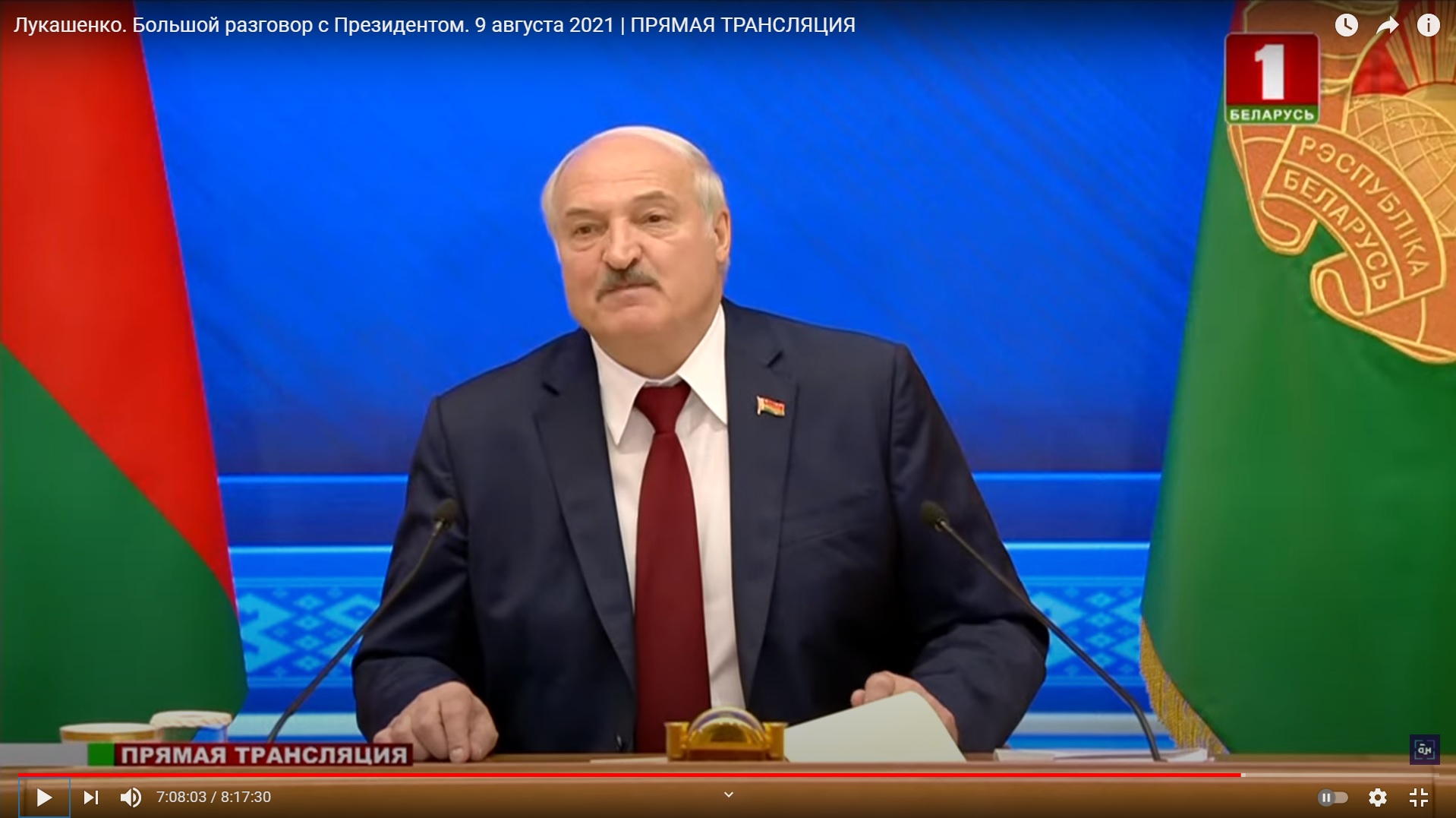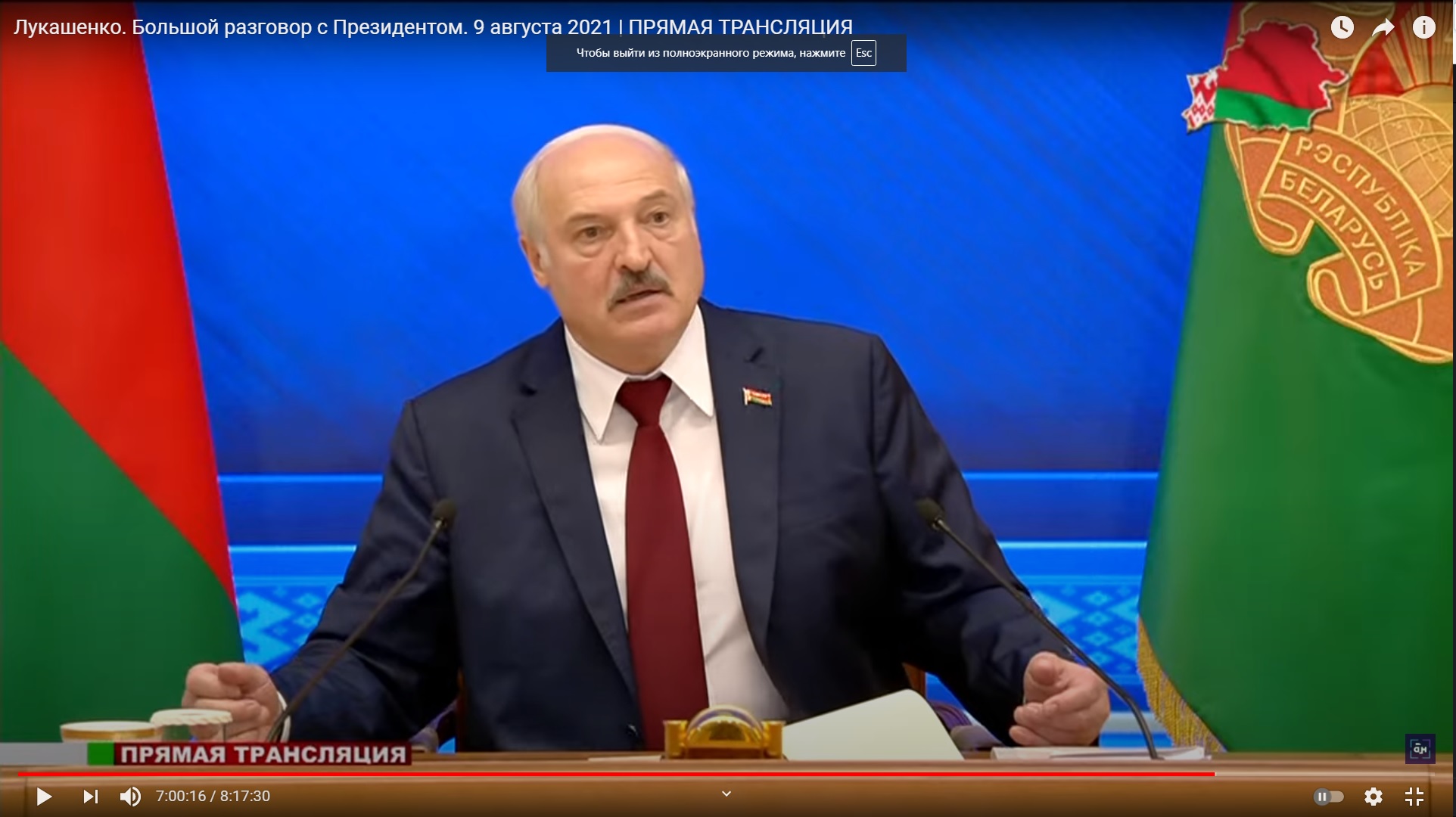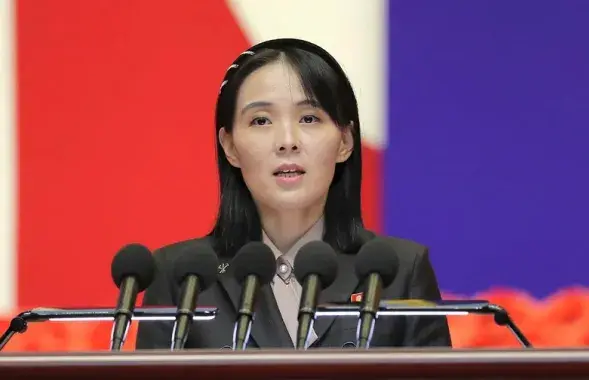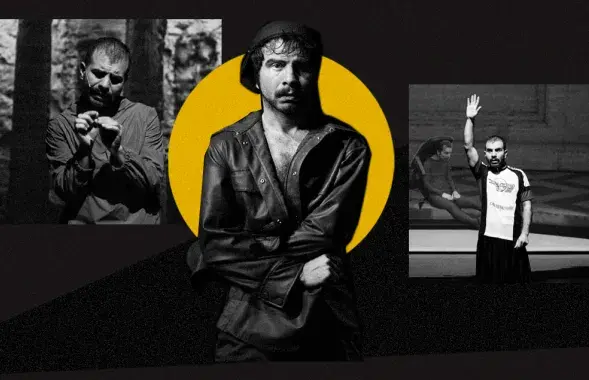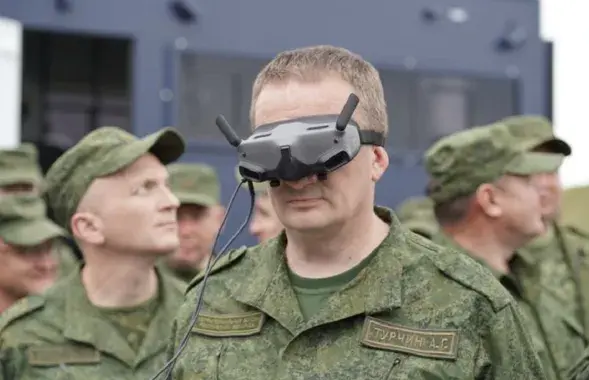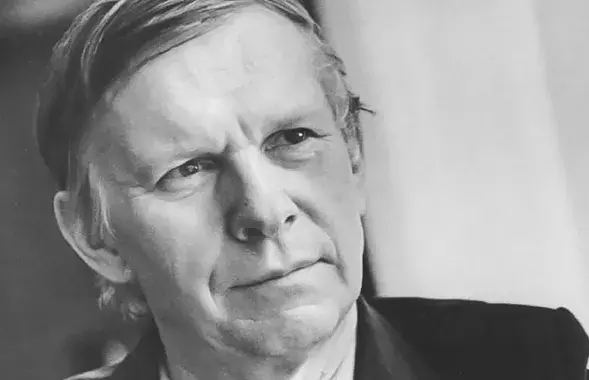Lukahenka's speech manners reveal fear and impotence - pundit
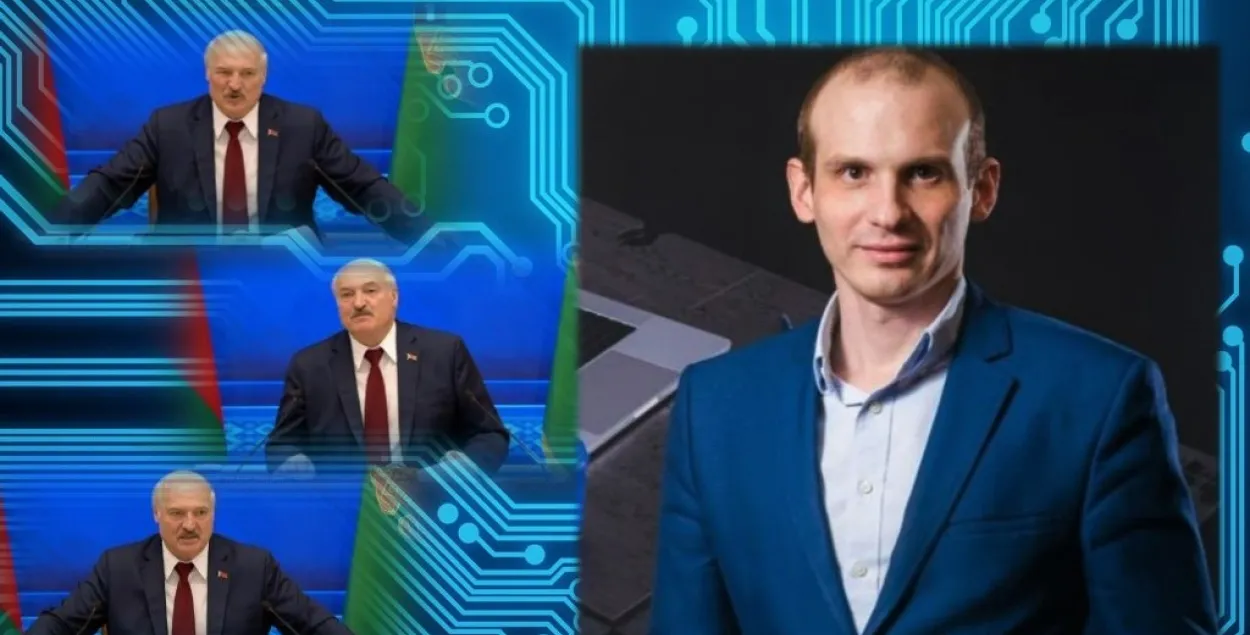
Alyaksandr Lukashenka and Ilya Anishchenko / collage by Euroradio
On August 9, the anniversary of the presidential elections in Belarus, Alyaksandr Lukashenka gathered a pool of loyalists and some journalists for a "Big Conversation" which lasted more than eight hours.
While talking to the press, he spoke in a harsh manner against his opponents, foreign journalists, and world politics in general. He feared the beginning of the Third World War, waved his hands, and got very angry.
"An affective state is a state in which a person ceases to consciously control his actions because of an emotional surge. He turns into, roughly speaking, an animal and begins to act on instinct. All that running around with a machine gun last year was close to that. Next time he'll load it up and start shooting at the crowd," a Russian lie and body language expert and behavior analyst Ilya Anishchenko told Euroradio.
At Euroradio's request, the expert agreed to watch the "Big Talk" with Lukashenka and analyze his manner of public speaking.
Epileptoid psycho type (not like Putin's)
"In terms of terminology, Lukashenka has an epileptoid psycho type. For this psycho type, the emotion of anger is basic. Such people are most often angry in life.
If we compare it to Vladimir Putin, the President of Russia has a different basic psycho type - a paranoid one. Putin is better at controlling his emotions and does not allow himself to do in public what Lukashenka does.
Lukashenka's emotions of anger prevail.
Manifestation of anger and rage
"Why does he start resorting to insults, belittling tone, making a lot of jokes? Such behavior is an actualization of anger and inner rage. These emotions arise often now, and he can't control them.
Moreover, if we track the dynamics of his answers to foreign journalists' questions, we can see how he is increasingly winding himself up. At first, he answers calmly, then he seems to stop talking - he says he's done, but then he goes on again, giving some arguments. You can hear by the intonation that he is getting angrier and angrier with each time.
Look at how Lukashenka's facial expressions change when he calls foreign journalists a "bad tool". Ilya Anishchenko says the head of state is disgusted at this time.
Going personal
"While he is speaking about Svyatlana Tsikhanouskaya, Lukashenka's facial expression changes. Speaking at a press conference, he mentions her, calling her "Mrs. Tsikhanouskaya." At this moment, the folds around his nose rise, indicating dislike and disgust (as if he smelled something unpleasant), and his lips become tense: this is how anger shows. Taken together, these emotions mean hatred for the person mentioned, a clear emotional response to Tsikhanouskaya can be seen.
Calling Pavel Latushka a "sucker," he is angry that he cannot influence him: he cannot stop or put him away, he has no power over him. How do you express anger when you can't hit? You insult.
At the moment, it is the only way for Lukashenka to express his anger towards his opponents. He can also make jokes about them.
Fear and powerlessness
"Let's recall how he reacted when he was asked about the prisoners in Akrestsin street jail [Lukashenka really doesn't like questions about the people detained at the protests: he calls them "urks", gets nervous and says they fake their own bruises - Euroradio].
When one of the female journalists asked him questions afterward, he even joked that it was good that the word "Askrestsina" didn't come up. In fact, he is angry, and this anger is a consequence of fear of the situation unfolding around him and Belarus.
This anger is intensified by his inability to cope with it. Lukashenka feels helpless.
During the "Big Talk," BBC journalist Sarah Rainsford asked Lukashenka about legitimacy. Look at how the head of state's facial expression changes. According to Ilya Anishchenko, he feels anger at this moment.
"It is one of the most intense moments I've seen," says the expert. "You can see how within a few minutes the anger grew gradually, but at the end he pulled himself together."
The stress at this point also builds up. Notice how at the last phrase, although he spreads his hands wide, he rubs his fingers to calm himself. Then he grabs his jacket to fix it, but the camera moves off.
Also, the stronger his anger is, the more often he breathes and the wider his mouth is in the pauses between sentences.
When we are angry at something, we want to fix it. Sometimes it doesn't work out. Take a domestic situation: a man is standing in a traffic jam and gets nervous. He begins to try to get around it, and so he sees ways of solving the problem. He yells, gets his anger out, and continues driving. But when you realize that you can't fix anything, you become even angrier at yourself and those around you - so the anger intensifies.
I've been watching Alyaksandr Lukashenka for a year, since the start of the protests. The fact that he was running around with a submachine gun is all a consequence of both fear and stress that he cannot resolve the situation. He can't leave, he can't give up, he can't change anything. As a result, all this translates into verbal aggressive behavior like insults and jokes about the opponents.
Passive aggression is already abnormal
"When a person reacts in such a way to the problem, he starts to develop psychosomatics, some diseases appear. Passive aggression develops, and, naturally, this is not normal. This is a serious problem. Some people are driven to murder by uncontrolled outbursts of anger. Your country's leader has them in emotional decisions.
His main problem is that his anger is not realized and stays inside. Everyone comes out of this state in his own way: some may want to push back, yell in the woods. If you keep negative emotions inside, it begins to affect the quality of life and communication with others.
The more pressure is put on Lukashenka, the worse it will be for his health and the quality of his decisions.
In this case, it is not necessary to go to a doctor. It is important to understand and realize what is going on and to realize your anger somehow. You need to go to a specialist if the cause of this behavior is some kind of childhood trauma and you cannot control your anger or control yourself at all. All of this can come from childhood and is fraught with a state of affect."
And this is how Ilya Anishchenko comments on Raman Pratasevich's statement:
